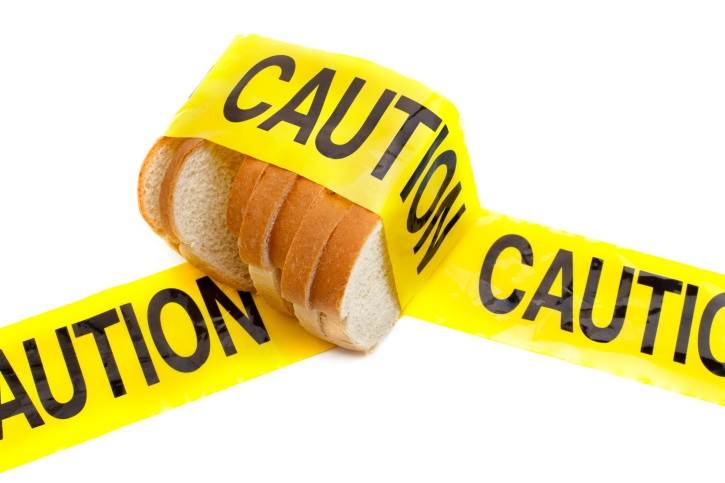How Can I Tell if I’m Gluten Intolerant?
About 1 in every 133 Americans is gluten intolerant. The majority of people who are gluten intolerant do not even know that they are. The reason for this is that the symptoms are so commonplace that it is easy to assume that you’re just feeling a little “off”.
Over time, people get used to feeling these symptoms and just assume that they have poor health or they are getting old. In reality, they are gluten intolerant and they’re consuming foods that is just not agreeing with their body’s constitution.
This article will highlight a few common symptoms that many gluten intolerant people experience. If you see these signs recurring in your daily life, you might want to see a doctor and check things out.
If you feel bloated, have gas all the time and suffer from constipation, you might be gluten intolerant. Your intestines are having issues with the food you’re consuming. Diarrhea is also a common symptom.
Your energy level is another indicator. Are you always feeling lethargic? You’re 28 but feel like you’re 208? Gluten intolerant people feel totally drained after a meal because of the effects in the digestive tract. The larger the meals, the more exhausted you feel. This is something that you can easily monitor.
How do you feel after you eat? Do you get irritated or angry easily? This is another sign of gluten intolerance.
Swollen glands are another indicator of gluten intolerance. In fact, this is one of the best indicators. If your glands are swollen, there is definitely an issue in your body that requires attention. If this happens frequently, you shouldn’t just brush it aside as “just one of those things that will go away”. You may be gluten intolerant.
Migraines, cluster headaches, tension headaches, etc. that occur frequently after your meals could be symptoms of gluten intolerance. Many people seek treatment for the headaches by using aspirin or other methods. The relief while temporary, does nothing to solve the problem. Only a gluten-free lifestyle can put an end to your headaches.
Inflammation in the body is one of those signs of gluten intolerance that is often misdiagnosed. People think they are having muscular aches or poor blood circulation. Everything is blamed except gluten and that’s because most people aren’t even aware of what gluten intolerance is.
If your body constantly aches or if the joints feel swollen and painful all the time, you’re suffering from inflammation. Either that or you’re learning kung-fu. Since it will most probably be the former, you’re just gluten intolerant. You need to change your diet.
There is an old adage that goes, “It’s not what you eat. It’s what is eating you that causes ill health.” Sorry… if you’re gluten intolerant, it’s totally what you eat. We’ll save the adage for later. For now, you need to avoid gluten.
Even the way you feel is affected. Feeling down? Feeling depressed? Just not feeling good? It could be gluten.
Suddenly developing rashes? Eczema? Keratosis pilaris? It could be gluten.
As you can see, if you’re gluten intolerant, there are so many ways you can be affected. The best thing to do would be to keep a journal to record the food you eat and how you feel. Over time, you will notice a pattern and realize what is triggering the problems. From there it’s just a matter of tweaking your diet to end the symptoms.
Take an active interest in the way you feel and what you eat. If you planning on living a long, healthy life, you have to start today.
